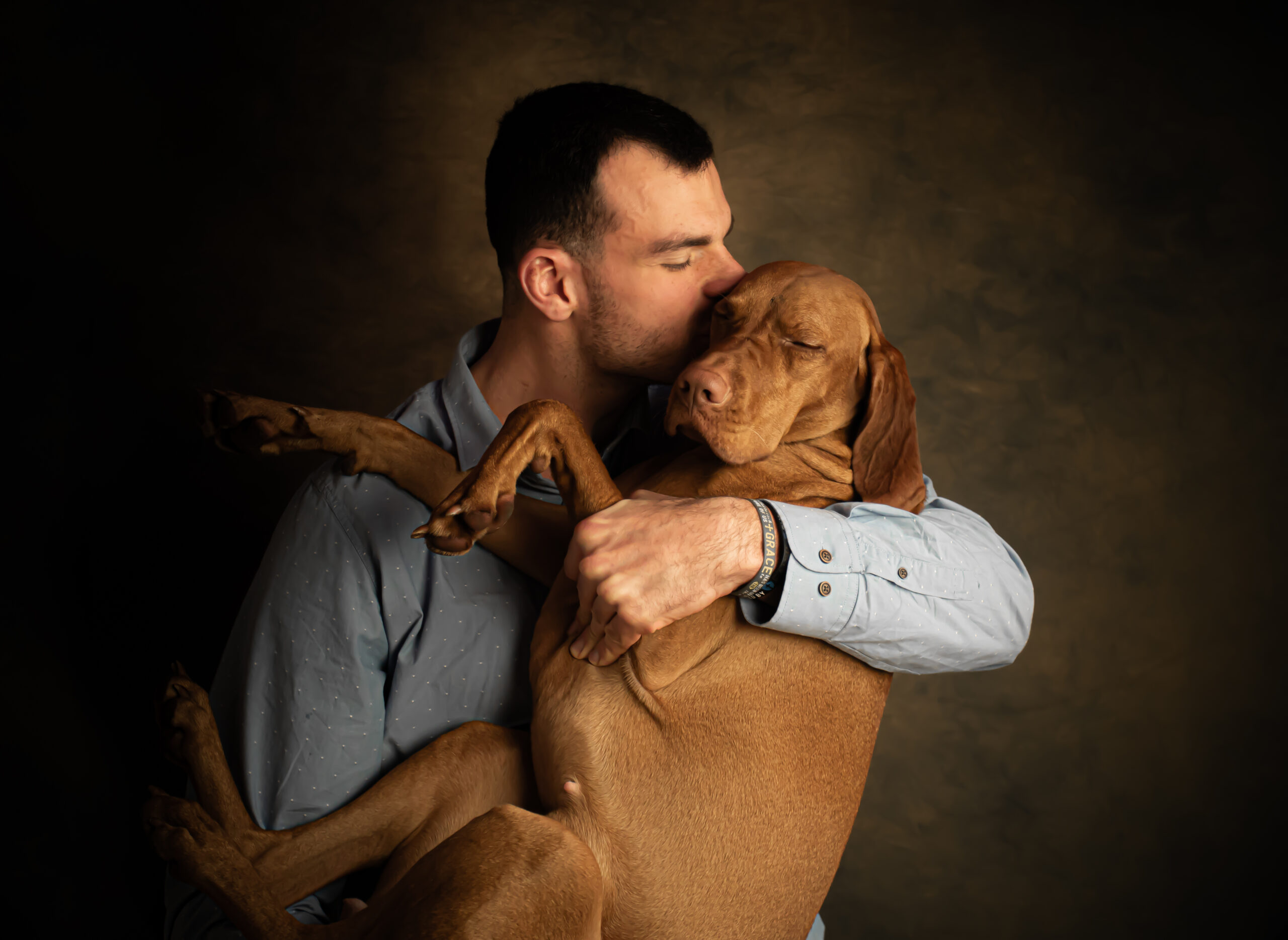Jazz’s Journey
A Story of Resilience and Hope
In spring 2023, we welcomed our first Vizsla, Jazz, into our family. From the very beginning, she was an extraordinary dog to us. Her boundless energy and unwavering love made her an irreplaceable part of our lives. But everything changed when Jazz turned one year old.
After a routine hip screening, she was diagnosed with severe hip dysplasia (HD). The news hit us hard, as she showed no clinical symptoms. We entered a long period of mourning for the future. We gave her the best care possible – from balanced premium and organic natural food, carefully structured rest and (mental) exercise programs, professional trainers, a dental specialist and more. We couldn’t believe the diagnosis and sought guidance from orthopedic specialists, who explained that Jazz’s future was uncertain.
Hip dysplasia is a complex and unpredictable hereditary condition. Despite the best efforts, it can still occur due to factors beyond anyone’s control. Its polygenic nature—where multiple genes contribute to the final expression of a particular trait—makes it nearly impossible to fully prevent or eliminate. Even with carefully selected breeding pairs and the best care, HD can still develop. There was no way to predict what lay ahead for Jazz.
Some dogs with HD face significant challenges early in life, while others live full and happy lives with proper management. The orthopedic specialist told us about cases of young dogs being put down due to their condition, but also stories of dogs living fulfilled lives at 14 years of age, with proper management and medication. Concerned that she might be suffering, we were reassured by the vet that she was in excellent condition. Her lack of clinical symptoms was likely due to her well-developed joint stability and training program.
We realized that what mattered most was ensuring Jazz could live a joyful and fulfilling life, despite the uncertainty. Following the orthopedic vets advice, we continued training ensuring she stayed strong, active, and fulfilled—while carefully balancing rest and recovery. My background in physiotherapy proved invaluable in designing the right rehabilitation routine, adjusted to her fluctuating daily needs. After consulting with the Dutch Kennel Club (Raad van Beheer), we kept participating in dog shows – not specifically for accolades, but because Jazz genuinely loves being included and working together. What happened next was nothing short of extraordinary.
Jazz didn’t let her diagnosis define her: she became Runner-up Top short-haired Vizsla in the Netherlands and Best short-haired female Vizsla of 2024! 🇳🇱 She contributed the most points to her kennel’s achievements, securing their N° 1 spot in the wow competition, all with HD. Her ever-wagging tail in the ring and her special connection with her owner handler, Ruben, didn’t go unnoticed by the judges’. And to us, it was her happiness that mattered most.
It’s important to note, however, that Jazz’s recognition in the ring is not about promoting her as a breeding prospect—she will never be part of any breeding programs due to her hereditary condition. Instead, her journey highlights how dogs can thrive and achieve incredible things even when faced with challenges like HD. Every dog is unique, and with the right care, management and love, they can live happy and fulfilled lives.
Hip dysplasia affects many dogs and their owners, and while it can feel overwhelming, it’s not something we should ignore and sweep under the rug. Transparency and collaboration is key. At the heart of it all, we share a common bond: our love for our dogs. By working together and supporting one another, we can ensure that all dogs (present and future) have the best quality of life. That’s what they all deserve!
If your dog has (hip) dysplasia, know that you are not alone. Educate yourself, work with trusted professionals, and focus on your dog’s happiness and strengths. Together, you can overcome obstacles and achieve incredible things. While Jazz’s future may be uncertain, our love and commitment to her are unwavering. Her life will be filled with joy, love, and adventure—always within her limits and tolerance, for as long as she can be.
Thank you, Jazzy, for teaching us the true meaning of resilience and unconditional love.
P.s.
While Jazz her case may have been “just a case of bad luck”, her story underscores the importance of prioritizing health in breeding programs. By prioritizing health screenings, studying family health histories, keeping track of the litters health and adjust breeding decisions accordingly – we can significantly reduce the risk of passing on health conditions to future generations. This not only prevents suffering for dogs and their owners, but it helps preserve the health and well-being of our beloved breed.

No Comments